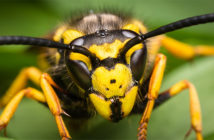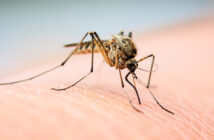The absence of visitors during lockdown could damage priceless exhibits, the British Museum has warned, as it has been battling invasive insects.
The Telegraph reported that experts at the institution, which houses delicate historical artefacts, have warned that without the usual crowds of tourists browsing displays due to COVID-19, settling dust can make an inviting environment for problem creatures.
Birds can enter the building and rodents gnaw their way into the Bloomsbury museum, but the greater threat comes from woodworms, moths, and carpet beetles which can devour irreplaceable items.
The British Museum told the Telegraph that it is tackling the problem of increasing insect numbers in the galleries to defend fragile treasures, and a specialist ‘integrated pest manager’ is keeping the bugs at bay.
The old and complex 19th Century building presents problems for thorough pest control, and the prevention of infestation is done in a “holistic” way without the use of pesticides or poisons.
Displays in the museum also offer perfect food for invasive insects, with skin, fur, feathers, and wood all ideal sustenance for the most common problem creatures. Those on open display in spaces like the Great Court are more susceptible to damage.
Museum staff have been monitoring the bug population in the building, conducting risk assessments for historical items which could come under threat, and pest-proofing the site.
A spokeswoman for the British Museum said the issues presented by a lack of footfall.
She said: “The collection is housed in a splendid, but old and complex, building and our visitors play their part in controlling humidity and dust levels that create environments for pests to thrive.”




